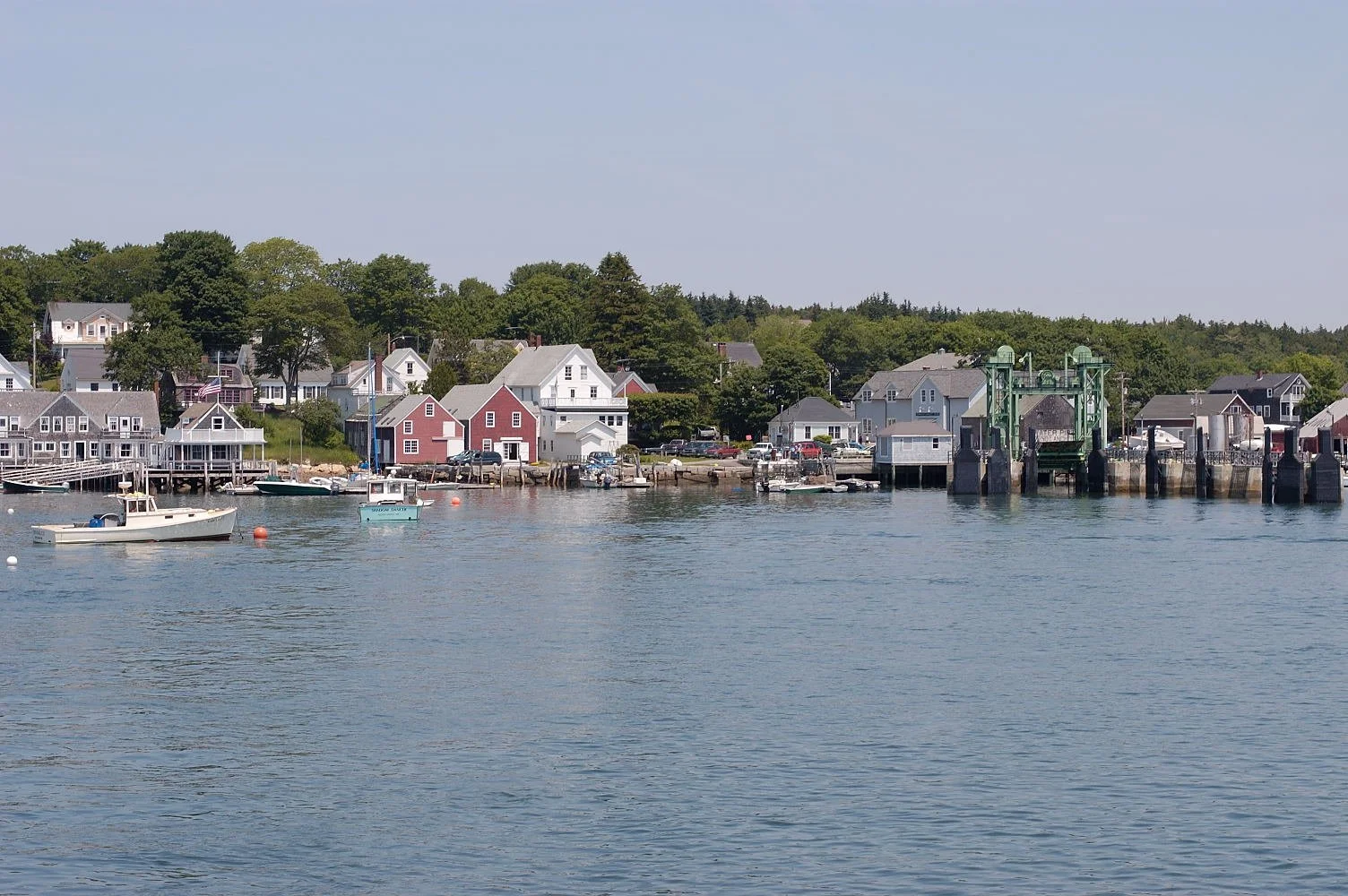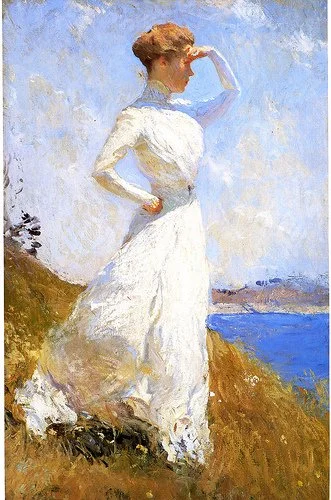
‘Dripping jawful’
North Haven and the Fox Islands Thoroughfare viewed from Rockland, Maine.
“The bight is littered with old correspondences.
Click. Click. Goes the dredge,
and brings up a dripping jawful of marl.
All the untidy activity continues,
awful but cheerful.’’
—From “The Bight,’’ by Elizabeth Bishop (1911-1979), a Pulitzer Prize-winning poet, who was born in Worcester and died in Boston but lived in many places in between, including North Haven, Maine, where she had a summer place.
Goes with the territory
“The roaring alongside he takes for granted,
and that every so often the world is bound to shake.
“He runs, he runs to the south, finical, awkward,
in a state of controlled panic, a student of Blake.’’
—From “Sandpiper,’’ by famed American poet Elizabeth Bishop (1911-1979), who was born in Worcester and died in Boston. She lived in Brazil, among other places.
She spent parts of six summers (1974-1979) on the island town of North Haven Island, Maine, best known for its summer colony of prominent Northeasterners, particularly Boston Brahmins. Among the more notable summer residents was the painter Frank Weston Benson, who rented the Wooster Farm as a summer home and painted several canvases set on the island.
Harborfront and ferry terminal on the island of North Haven.
— Photo by Jp498
“Summer,’’ by Frank Weston Benson
'Grave green dust'
“For two weeks or more the trees hesitated;
the little leaves waited,
carefully indicating their characteristics.
Finally a grave green dust
settled over your big and aimless hills.’’
— From “A Cold Spring,’’ by Elizabeth Bishop (1911-1979), off and on a New Englander
'Homely as a house'
”A moose has come out of
the impenetrable wood
and stands there, looms, rather,
in the middle of the road.
It approaches; it sniffs at
the bus’s hot hood.
Towering, antlerless,
high as a church,
homely as a house
(or, safe as houses).
A man’s voice assures us
Perfectly harmless....”
— From “The Moose,’’ by celebrated poet Elizabeth Bishop (1911-1979), who was born in Worcester and died in Boston
Photo by Beeblebrox
The same old, cold day
“The waiting room was bright
and too hot. It was sliding
beneath a big black wave,
another, and another.
“Then I was back in it.
The War was on. Outside,
in Worcester, Massachusetts,
were night and slush and cold
and it was still the fifth
of February, 1918.’’
— From “In the Waiting Room,’’ by Elizabeth Bishop (1911-79)
Three deckers on Houghton Street, Worcester.
American Steel & Wire Company, c. 1905, employer of about 5,000 during Worcester’s industrial heyday.
But still spring
— Photo by Victor Estrada Diaz
Nothing is so beautiful as spring. -{Gerard Manley} Hopkins
“A cold spring:
the violet was flawed on the lawn.
For two weeks or more the trees hesitated;
the little leaves waited,
carefully indicating their characteristics.
Finally a grave green dust
settled over your big and aimless hills.’’
— From “A Cold Spring,’’ by Elizabeth Bishop, often a New Englander
Early spring on the New England coast
"It was cold and windy, scarcely the day
to take a walk on that long beach
Everything was withdrawn as far as possible,
indrawn: the tide far out, the ocean shrunken,
seabirds in ones or twos.
The rackety, icy, offshore wind
numbed our faces on one side;
disrupted the formation
of a lone flight of Canada geese;
and blew back the low, inaudible rollers
in upright, steely mist."
-- Elizabeth Bishop, "The End of March''











